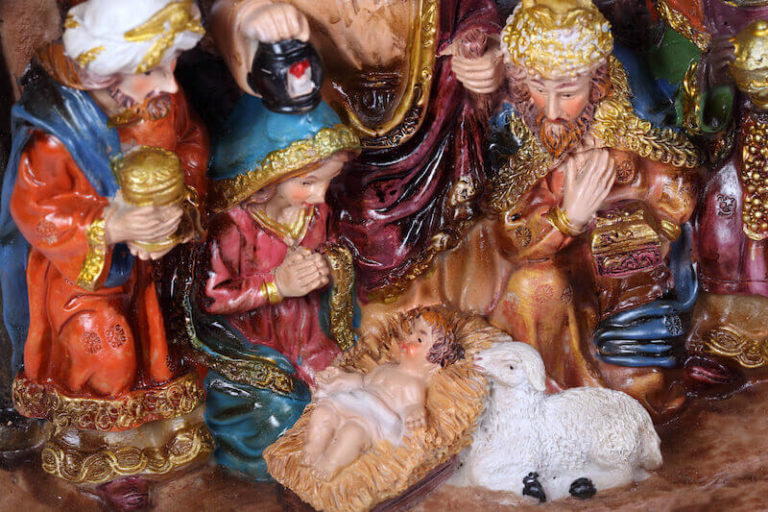You have found favor with God
And the angel said to her, “Do not be afraid, Mary, for you have found favor with God (Luke 1:30 ESV)

Mary was an ordinary teenage girl minding her business when an unusual visitor approached her. The angel Gabriel was sent from God to tell Mary what had been decided in heaven already. As expected, she was afraid when she saw the angel, but Gabriel quickly spoke to her and said, “do not be afraid, Mary, for you have found favor with God.” Gabriel was announcing to Mary that her name had been mentioned in high places in heaven!
What did Mary do to earn God’s choice as the mother of the Savior? Well, nothing! She did not even know her name was being called in heaven while going about her usual house chores. She was chosen, not because of something she did but because of God’s own choice. This is grace. However, it is important to note God’s choice was not random. It is not because it was grace that God could have gone to choose a woman from a neighboring country such as Tyre and Sidon. Mary was an Israelite, and she was also a virgin, sexually undefiled. Her sexual purity was not why she was chosen, but it did play a part in her being chosen. God could use anyone, such as Rahab, a prostitute in the OT, but He chose a virgin to be the biological mother of His holy Son.
You are saved by grace and not by works(of the law), but your works( good works) matter.
MEDITATE
What is the difference between “works of the law”( Gal. 2:16) and “good works” ( Eph. 2:10)?
APPLY THE WORD
You cannot earn salvation by trying to live holy, praying, giving, etc. This is the work of the law. However, once saved by His grace, it matters whether you live a holy life, pray, give, etc. This is good works. You have found favor with God. Abide and shine in that favor through your works!
PRAY
Thank the Father for making us accepted in the Beloved( Eph. 1:6).
Sanctify yourselves therefore, and be ye holy: for I am the Lord your God. And ye shall keep my statutes, and do them: I am the Lord which sanctify you. (Leviticus 20:7–8, KJV)

As the Great I AM that I AM, God revealed Himself as the Lord who sanctifies His people in the Old Covenant—Jehovah Mekaddishkem. But this was only a shadow of something greater that was coming in the New Testament.
Jehovah Mekaddishkem is the English transliteration of the Hebrew words for “I am the Lord which sanctify you” ( “mekaddish” = sanctify, “kem” = you). Divine names and titles in the Old Testament often reveal an aspect of God in relation to His people.
There are three keywords that underlie the meaning of sanctification: “wash,” “consecrate,” and “separate.” Sanctification essentially means to make something holy. Sinlessness is a core aspect of holiness, but there is more to holiness than sinlessness. It is the very nature of God. However, when used in reference to us humans, it means to be cleaned from sin, set apart for God, and consecrated to Him.
In the passage above, God tells the people first to sanctify themselves and then reveals He is the One who sanctifies them. Thus, He gives us the two sides of sanctification—the God side and the human side. There’s something God does and something His people do for their sanctification.
This truth was only a shadow in the Old Testament. It is in Christ that we see God fully revealed as Jehovah Mekaddishkem to His people through the sanctifying work on the cross. In speaking to the Corinthians, Paul revealed,
“And such were some of you: but ye are washed, but ye are sanctified, but ye are justified in the name of the Lord Jesus, and by the Spirit of our God.” (1 Corinthians 6:11, KJV)
This is Jehovah Mekaddishkem fulfilled in Christ: We were washed and sanctified. Note that these are in past tense, describing something God has already done. The day you received Christ, you received the bath of your life, a heavenly bath by the Spirit of God that removed every stain of sin through the precious blood of Christ. And as you continue to live on earth, the Spirit continues to sanctify you daily.
Following the sanctifying work He has already done in us, He commands us,
“For this is the will of God, even your sanctification, that ye should abstain from fornication:” (1 Thessalonians 4:3, KJV)
Now that you are clean, washed, and sanctified, He tells us to put that sanctification to work outwardly. Paul explicit states it is what God wants—His will. He gives us a very specific example of sanctification here: abstain from sexual immorality. Few things defile us, like sexual impurity. But sanctification certainly includes more than abstaining from fornication or adultery. As above, it includes living a consecrated and separated life to God daily in the way we talk, act, think, feel, and handle our bodies.
He is Jehovah Mekaddishkem, the God who has Sanctified you in Christ and continues to sanctify you every day.
Meditate
Is our sanctification completed, ongoing, or both?
Apply the Word
This is the crucial part of this devotional. Until you receive the truth that God has already sanctified you by His Spirit, you will not be empowered to be sanctified practically. Put God’s sanctification power to work in your life daily by faith in the finished work of Christ.
Pray
Ask the Lord to help you in your daily walk of sanctification.
Free Mini E-book: From Spiritual Dryness to Flourishing






